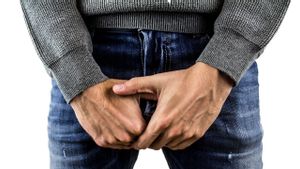JAKARTA - Nutrition expert from the Association of Indonesian Fitness Trainers (APKI) Irtya Qiyamulail said travelers may consume energy drinks or energy drinks to prevent drowsiness during travel or homecoming activities, but must be wise.
"Basically, we are allowed to consume energy drinks while going home, but we need to be wise in consuming them," she said as quoted by Antara, Sunday, April 24.
According to Irtya, energy drinks have different side effects depending on health conditions and the body's immune system. Some side effects that may occur due to consuming this drink are headaches, constipation, irritation to addiction.
She said that energy drinks can indeed help relieve sleepiness and fatigue, but the after effects can actually cause feelings of tiredness many times over.
In terms of the composition of the ingredients used, energy drinks usually contain caffeine to stimulate brain function and increase alertness and concentration. However, the more caffeine you consume, the risk of causing an increase in heart rate and blood pressure that can endanger health while traveling.
"The recommended amount of caffeine is 400 mg per day, so consumers need to check food labels, especially the caffeine content in energy drinks to minimize possible side effects," suggested Irtya.
SEE ALSO:
In addition to caffeine, these drinks usually contain sugar, amino acid derivatives such as taurine, herbs, and vitamins. To the public, especially people with diabetes, Irtya reminded them to pay attention to the sugar content in drinks. A sudden increase in blood sugar has a bad impact on health. For diabetic patients, Irya suggests low-sugar energy drinks or no sugar at all.
Regarding the amount of caffeine in energy drinks, Clinical Nutrition Specialist from Pelni Hospital, dr. Jovita Amelia, Sp.GK. say, this can exceed 1600 mg or four times the recommendation recommended by health experts.
As for sugar, it's generally around 40 grams, which means energy drink consumers can only add another 10 grams to meet their daily needs. Referring to the Ministry of Health, the daily sugar consumption limit per day should be no more than 50 grams or the equivalent of 4 tablespoons per person per day.
"High amounts of caffeine can cause anxiety, insomnia, high blood pressure, heart rhythm disorders, and other heart disorders. Excessive sugar is also not good for health, especially for diabetic patients and if you drink it often and excessively it can cause obesity," said Jovita.
The English, Chinese, Japanese, Arabic, and French versions are automatically generated by the AI. So there may still be inaccuracies in translating, please always see Indonesian as our main language. (system supported by DigitalSiber.id)















